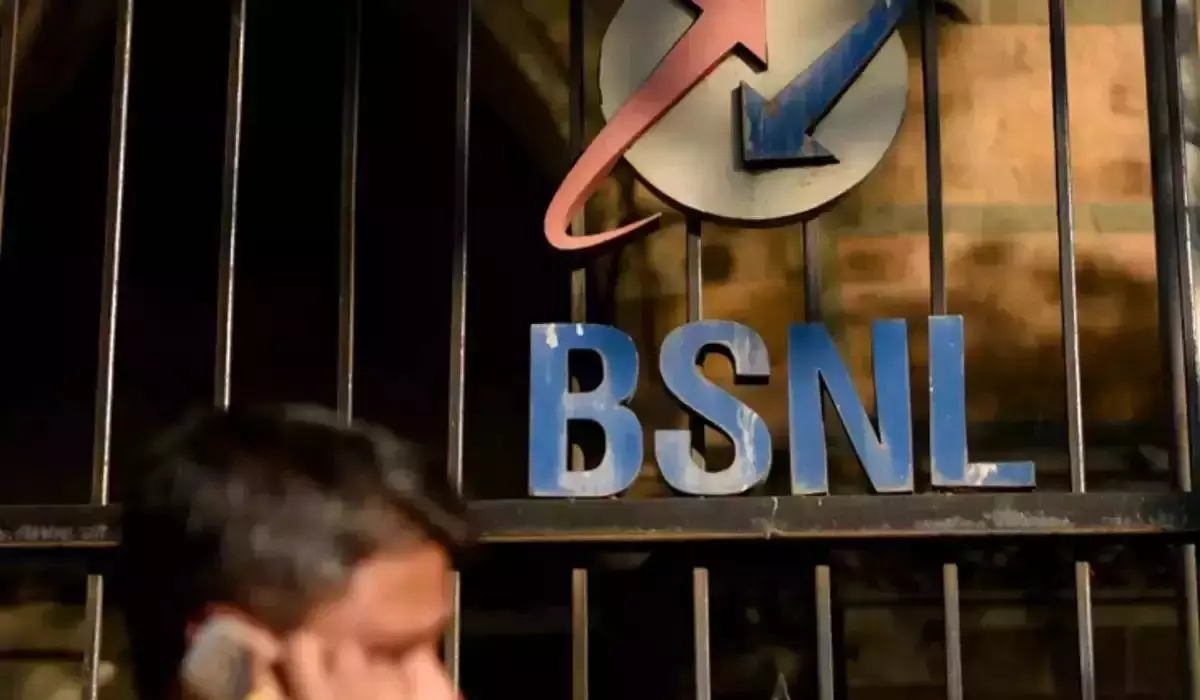BSNL revival package is baffling
Air India was said to be a white elephant as it was constantly incurring losses running into thousands of crores. The chronically sick PSU was guzzling taxpayer money at an annual rate of $ one billion. It was called the ‘national carrier’—perhaps because the nation carried it! If Air India was a white elephant, BSNL is a tyrannosaurus rex, for it has been tormenting the taxpayer in a crueler fashion. It has already gobbled Rs 322,000 crore in three revival packages, the latest alone costing the exchequer Rs 89,047 crore. By any reckoning, Rs 322,000 crore is a lot of money and twice the amount allocated for defence capital outlay this fiscal. The third package includes allotment of 4G/5G spectrum for BSNL through equity infusion. The government called the decision “a significant move,” which will help BSNL emerge as “a stable telecom service” provider focused on providing connectivity to the remotest parts. Ironically, BSNL just reports operating profits—Rs 1,177 crore in 2020-21, Rs 944 crore in 2021-22, and Rs 1,559 crore in 2022-23. In the same sector, Airtel, a private company, earned a net profit of Rs 1,269.3 in the last fiscal. The third, Rs 89,047-crore revival package will enable BSNL to provide pan-India 4G and 5G services, 4G coverage in rural and uncovered villages under various connectivity projects, fixed wireless access (FWA) services for high-speed internet and CNPN.
image for illustrative purpose

Air India was said to be a white elephant as it was constantly incurring losses running into thousands of crores. The chronically sick PSU was guzzling taxpayer money at an annual rate of $ one billion. It was called the ‘national carrier’—perhaps because the nation carried it! If Air India was a white elephant, BSNL is a tyrannosaurus rex, for it has been tormenting the taxpayer in a crueler fashion. It has already gobbled Rs 322,000 crore in three revival packages, the latest alone costing the exchequer Rs 89,047 crore. By any reckoning, Rs 322,000 crore is a lot of money and twice the amount allocated for defence capital outlay this fiscal. The third package includes allotment of 4G/5G spectrum for BSNL through equity infusion. The government called the decision “a significant move,” which will help BSNL emerge as “a stable telecom service” provider focused on providing connectivity to the remotest parts. Ironically, BSNL just reports operating profits—Rs 1,177 crore in 2020-21, Rs 944 crore in 2021-22, and Rs 1,559 crore in 2022-23. In the same sector, Airtel, a private company, earned a net profit of Rs 1,269.3 in the last fiscal. The third, Rs 89,047-crore revival package will enable BSNL to provide pan-India 4G and 5G services, 4G coverage in rural and uncovered villages under various connectivity projects, fixed wireless access (FWA) services for high-speed internet and CNPN.
All this sounds very comforting, but let’s scrutinize the earlier government claims. In October 2019, while approving Rs 69,000-crore package, the government had expressed hope about BSNL’s “reliable and quality services through its robust telecommunication network throughout the country including rural and remote areas.” Did that happen? No, instead, it demanded more money, and the government obliged in July 2022 with Rs 1.64 lakh crore. It is expected that with the implementation of this revival plan, BSNL will turn-around and earn profit in FY 2026-27, an official statement said.
Similar promises have been made this time; the government has again obliged BSNL.
BSNL’s revival is impossible because it is technologically backward and operationally slack, suffering from all the ailments a PSU is possibly prone to. While private operators have shifted to 5G, BSNL has not been able to go fully 5G. Commerce Minister Piyush Goyal says that BSNL will soon be fully 5G.
Like other PSUs, BSNL is also afflicted with usual problems—meddling by politicians and bureaucrats, red tape, time-consuming processes, PSU culture, the fear of CAG, CVC and courts. Besides, the package underlines incongruity in economic policy. On the one hand, the government follows Prime Minister Narendra Modi’s maxim that the business of government is not business; this is the reason Air India was sold to the Tata Group. On the other hand, it spends humongous sums to keep a PSU alive.
It is time the government removed such incongruities.

